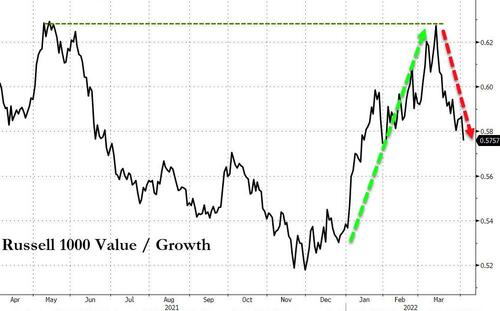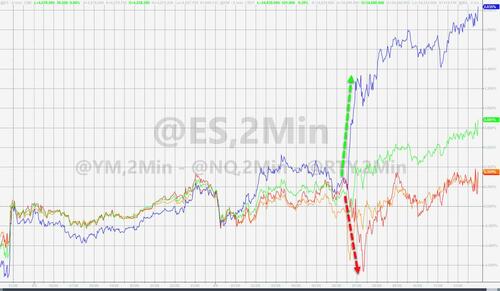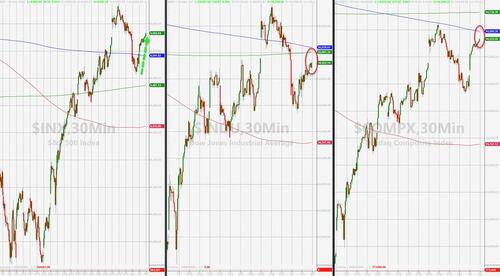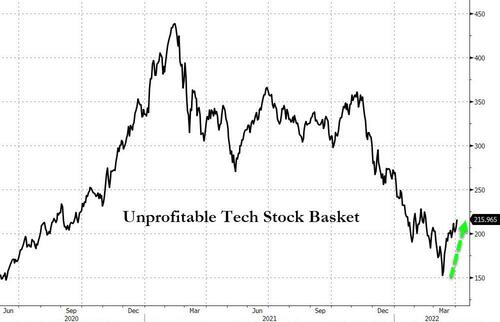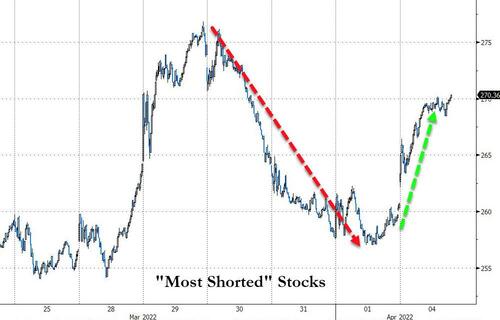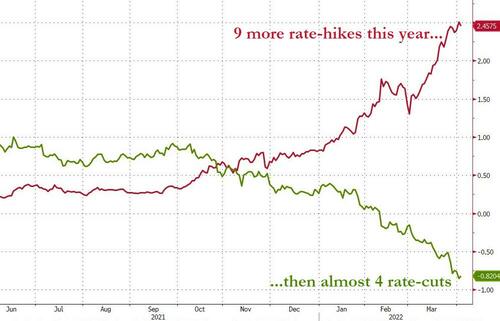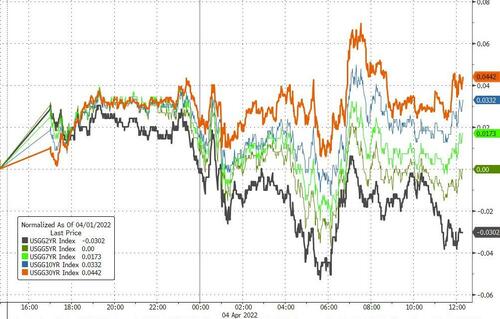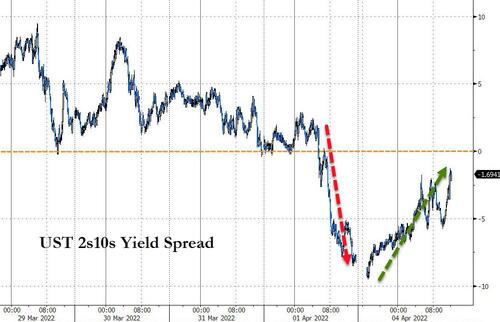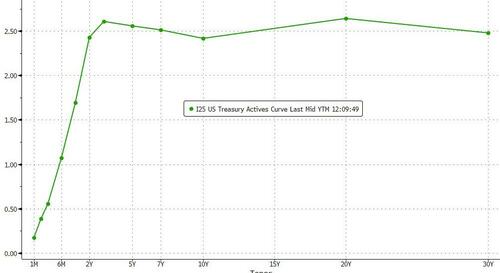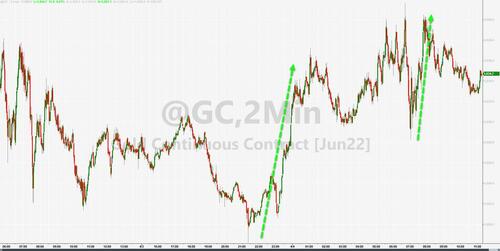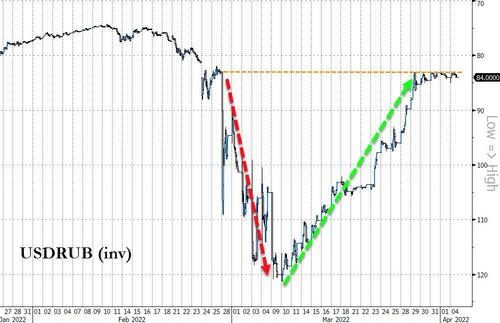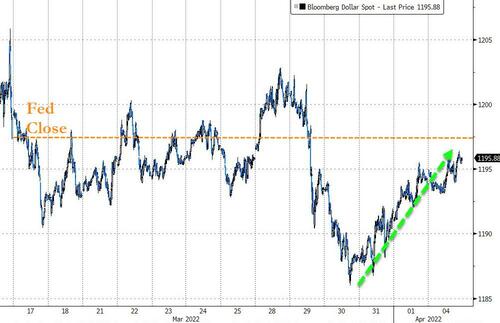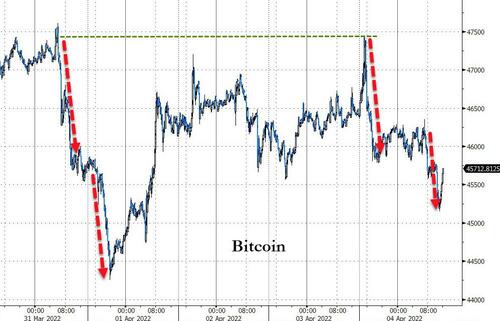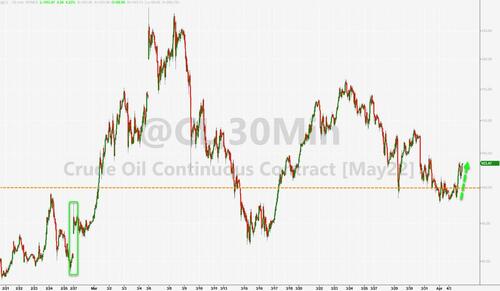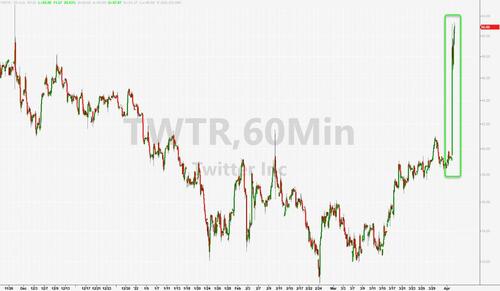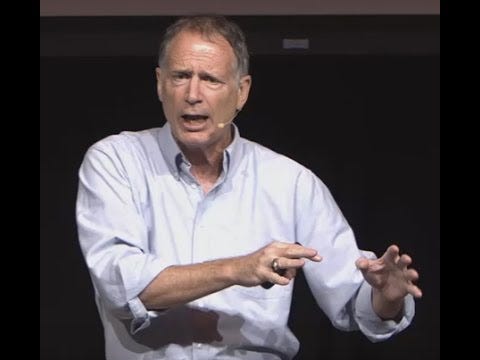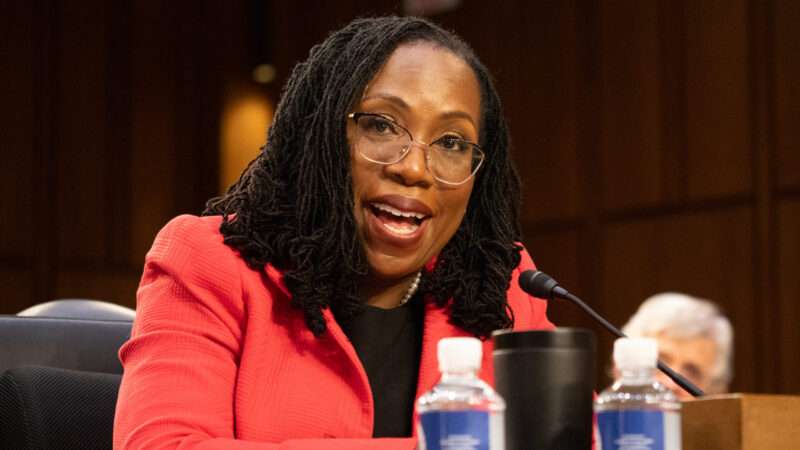
Discussing Ketanji Brown Jackson’s Supreme Court nomination today, Sen. Charles Grassley (R–Iowa) brought up her resentencing of a heroin dealer named Keith Young—a case that Sen. Tom Cotton (R–Ark.) grilled her about during her confirmation hearing last month. Grassley, like Cotton, suggested that Jackson had flouted federal law by retroactively applying a sentencing reform that Congress had chosen not to make retroactive. But the issue is not so straightforward, since federal appeals courts have disagreed about the legality of Jackson’s rationale for shortening Young’s sentence.
In July 2018, Jackson, then a judge on the U.S. District Court for the District of Columbia, sentenced Young, who had been convicted of possessing with intent to distribute one kilogram or more of heroin, to 20 years in federal prison. That penalty was mandatory once prosecutors invoked 21 USC 851, which applies to defendants with certain prior drug convictions. Two years later, Young filed a motion for “compassionate release” under 18 USC 3582(c)(1)(A), which allows judges to shorten sentences for “extraordinary and compelling reasons.”
The FIRST STEP Act, a package of criminal justice reforms that Congress enacted in December 2018 (five months after Young was sentenced), allowed prisoners to file such motions directly after exhausting administrative remedies. Previously, requests for sentence reductions under the compassionate release provision had to come from the Bureau of Prisons. Young, like many other prisoners who filed such motions during the pandemic, argued that he should be released in light of the danger posed by COVID-19, citing his asthma and smoking history as factors that made him especially vulnerable to the disease.
Although Jackson rejected that request, she shortened Young’s sentence from 20 years to 10, which is the term he would have received without the Section 851 enhancement. During her confirmation hearing, she noted that the FIRST STEP Act had tightened the requirements for such enhancements so that Young’s prior conviction would not have triggered Section 851 had he been sentenced after the law took effect on December 21, 2018. While that change was not retroactive, it meant that Young’s prison term would have been half as long had he been sentenced five months later. Jackson viewed that fact as an “extraordinary and compelling” reason to shorten his sentence.
As Grassley sees it, Jackson improperly substituted her policy judgment for the one reflected in the FIRST STEP Act. “Judge Jackson said she based her ‘extraordinary [and] compelling’ finding on the nonretroactive change in the law,” he said during a meeting of the Senate Judiciary Committee today. “This is a terrible and dangerous interpretation. Congress chose…which provisions of the FIRST STEP Act would apply retroactively…The Senate is currently considering legislation that I cosponsored with [Senate Judiciary Committee Chairman Richard Durbin (D–Ill.)] that makes some of the FIRST STEP Act retroactive. But Congress must make that change.”
It makes little sense for Congress to decide that penalties for certain drug offenses are excessively severe while forcing current prisoners to continue serving sentences it now considers unjust. Yet that is what Congress did, and Grassley argues that such inconsistency was the price of winning approval for the FIRST STEP Act. “The compromise that I brokered with Sen. Durbin on the FIRST STEP Act,” he said, “wouldn’t have been possible if we thought that the activist judge would insert their own views into the law. Decisions like this represent serious separation-of-powers concerns and will make bipartisan work harder in the future.”
Grassley noted that neither the compassionate release provision nor the U.S. Sentencing Commission’s guidelines mention nonretroactive penalty changes as an “extraordinary and compelling” reason for reducing a prison term. “It’s a radical position,” he said, “and it’s outside of the confines of law.”
Not according to several federal appeals courts, which have held that the phrase “extraordinary and compelling reasons” is broad enough to encompass Jackson’s rationale for shortening Young’s sentence. In the 2020 case United States v. McCoy, for example, the U.S. Court of Appeals for the 4th Circuit upheld “compassionate release” reductions for several defendants who had been sentenced under 18 USC 924(c), which prescribes a five-year mandatory minimum for anyone who possesses a firearm “in furtherance of” a drug trafficking offense, whether or not he actually used it. The gun sentence, which must be served in addition to the sentence for the underlying offense, rises to 25 years for each subsequent violation.
Prior to the FIRST STEP Act, first-time offenders who owned guns and were convicted of multiple drug charges could receive draconian sentences under 18 USC 924(c). One notorious case involved Weldon Angelos, a 24-year-old Utah record producer who received a 55-year mandatory minimum sentence in 2004 based on three 8-ounce marijuana sales to a government informant. Angelos, who was released in 2016 after prosecutors declined to oppose his petition for resentencing, never threatened or harmed anyone with a gun. But the fact that he possessed one was enough to trigger what could have amounted to a life sentence.
Outrageous cases like that persuaded Congress to prohibit the sort of “stacking” that prosecutors used against Angelos. Under the FIRST STEP Act, the 25-year mandatory minimum applies only to defendants with prior convictions for possessing a gun “in furtherance of” drug trafficking. But that change was not retroactive. The question for the 4th Circuit was whether it could nevertheless be considered in the context of a compassionate release motion. The appeals court said it could.
“Today, the defendants’ sentences would be dramatically shorter—in most cases, by 30 years—than the ones they received,” the court noted. While the compassionate release provision prohibits “sentence reductions that are not consistent with ‘applicable policy statements issued by the Sentencing Commission,'” the 4th Circuit said, the commission had not addressed the issue of what counts as “extraordinary and compelling reasons” when prisoners file the motions authorized by the FIRST STEP Act. “Nor was it otherwise improper,” the appeals court said, “for the district courts to consider the First Step Act’s declaration of the appropriate level of punishment under § 924(c) in assessing the defendants’ cases, on an individualized basis, for compassionate release.”
The government argued that sentencing commission guidelines issued before the FIRST STEP Act precluded consideration of nonretroactive reforms. Those guidelines said the justification for a reduced sentence could include a prisoner’s health, age, or family circumstances, along with “other reasons” that the Bureau of Prisons deemed “extraordinary and compelling.” But that “policy statement,” the prisoners successfully argued in McCoy, had plainly been superseded by the FIRST STEP Act: It was based on the assumption that only the Bureau of Prisons could file a “compassionate release” motion.
In the absence of an “applicable policy statement” from the sentencing commission, can the contrast between current penalties and the ones they replaced count as an “extraordinary and compelling” reason? The 4th Circuit thought so.
“Multiple district courts have concluded that the severity of a § 924(c) sentence, combined with the enormous disparity between that sentence and the sentence a defendant would receive today, can constitute an ‘extraordinary and compelling’ reason for relief under § 3582(c)(1)(A),” the 4th Circuit said. “We find their reasoning persuasive….We think courts legitimately may consider, under the ‘extraordinary and compelling reasons’ inquiry, that defendants are serving sentences that Congress itself views as dramatically longer than necessary or fair.”
The U.S. Court of Appeals for the 10th Circuit reached the same conclusion in the 2021 case United States v. Maumau, which involved the same sentencing provision. In the 2022 case United States v. Ruvalcaba, which involved the 25-year mandatory minimum for defendants with two or more prior convictions for a “serious drug felony,” the 1st Circuit likewise held that a court “may consider the [FIRST STEP Act’s] non-retroactive changes in sentencing law on an individualized basis, grounded in a defendant’s particular circumstances, to determine whether an extraordinary and compelling reason exists for compassionate release.”
In the 2020 case United States v. Brooker, the U.S. Court of Appeals for the 2nd Circuit agreed that “the First Step Act freed district courts to consider the full slate of extraordinary and compelling reasons that an imprisoned person might bring before them in motions for compassionate release.” It noted that the authority granted by that provision is “broad” and that federal judges had cited “overly long” sentences as a reason for granting relief. “Congress seemingly contemplated that courts might consider such circumstances when it passed the original compassionate release statute in 1984,” the 2nd Circuit said, citing the Senate report on the bill, which said relief might be appropriate when “other extraordinary and compelling circumstances justify a reduction of an unusually long sentence.”
In the 2021 case United States v. Andrews, the U.S. Court of Appeals for the 3rd Circuit agreed that judges are not bound by the sentencing commission’s outdated compassionate release guidance. But it held that neither “the duration of a lawfully imposed sentence” nor “nonretroactive changes to the § 924(c) mandatory minimums” qualify as an “extraordinary and compelling” reason for granting a compassionate release motion.
Agreeing with Grassley’s take on the issue, the 3rd Circuit said “considering the length of a statutorily mandated sentence as a reason for modifying a sentence would infringe on Congress’s authority to set penalties.” And it noted that “Congress specifically decided that the changes to the § 924(c) mandatory minimums would not apply to people who had already been sentenced.”
The 6th Circuit and the 7th Circuit have taken a similar view. The 8th Circuit this year agreed that “a non-retroactive change in the law…cannot constitute an extraordinary and compelling reason for reducing a sentence.”
Grassley, in other words, is hardly alone in thinking that Jackson exceeded her statutory authority when she shortened Keith Young’s sentence. But given the circuit split and the ambiguity of “extraordinary and compelling reasons,” it goes too far to describe Jackson’s view as “a radical position” that is clearly “outside of the confines of law.”
The post Did Ketanji Brown Jackson Flout the Law When She Reduced a Drug Dealer's Sentence? appeared first on Reason.com.
from Latest https://ift.tt/JY3BMb1
via IFTTT



